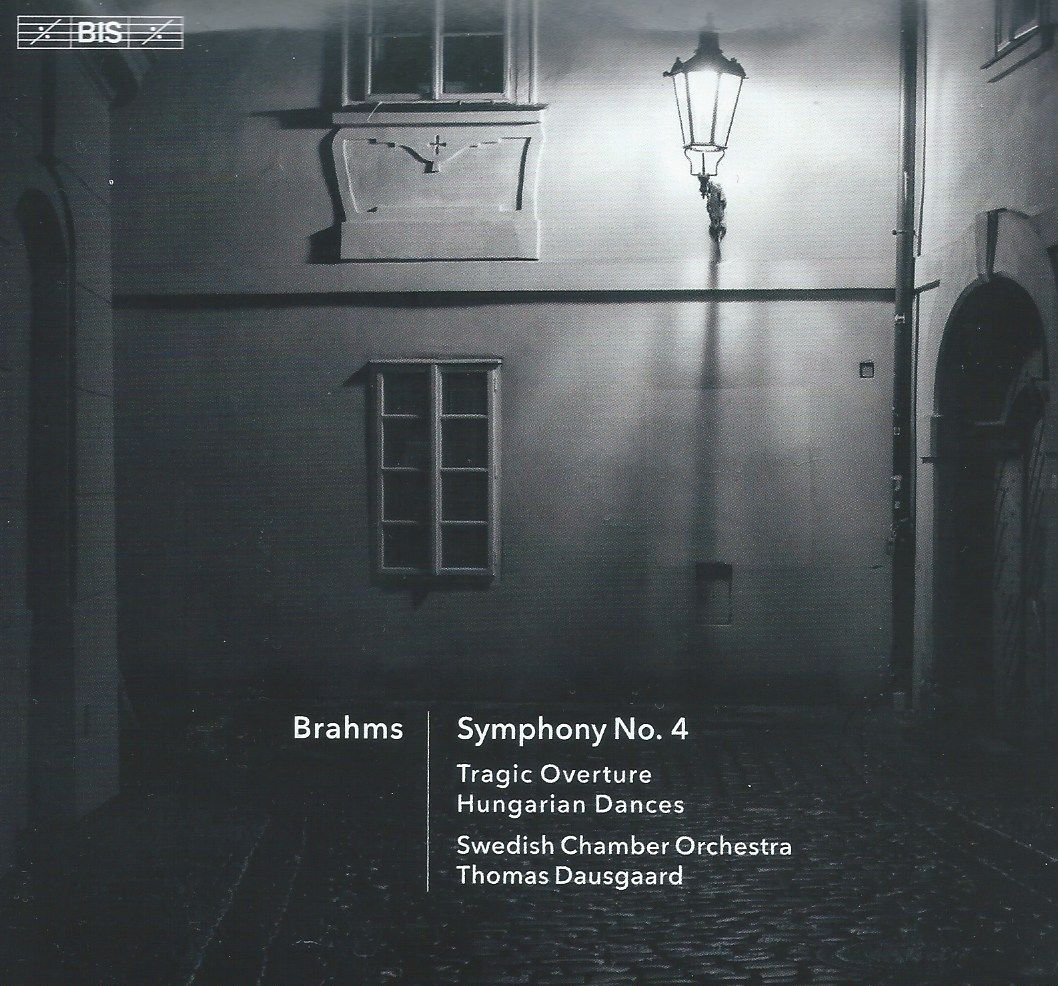New Brahms 4s from Sweden and Austria
Some mellow Brahms for a Sunday, his beautiful Fourth Symphony

Some mellow Brahms for a Sunday, his beautiful Fourth Symphony. We're taking two versions today, one of which is part of a boxed set cycle.
The live boxed set of Brahms symphonies by Philippe Jordan and the Vienna Symphony marks the end of the conductor's tenure with the orchestra. As of the autumn (the start of the orchestra's 120th season), the baton passes to Andrés Orozco-Estrada - a conductor who has been no stranger to London through his guest conductorship of the London Philharmonic.
While Brahms and Wagner were notoriously poles apart, Philippe Jordan seems equally at home in either. Part of Deutsche Grammofon Stage is to open up the Bayreuth archive, and Jordan's finely honed conducting of Meistersinger was a highlight (and a complement to Barrie Kosky's witty, if busy, production). We hear the same ear for detail and transparency in this performance of Brahms' last symphony, a piece of gorgeous lyricism that culminates in a wonderful Passacaglia last movement.
Jordan's performances were recorded live in the Golden Hall of Vienna's Musikverein - his orchestra is the Vienna Symphony Orchestra, a fine band in its own right if inevitably usually overshadowed by its big brother the Vienna Philharmonic. But listen to the care of Jordan's second movement, the Andante moderato, which includes moments of the greatest tenderness:
... and, interestingly, although the marking of the finale is Allegro energico e passionato, it is the more reflective moments where Jordan really goes deep:
Although I was less taken with Jordan's Beethoven cycle with the Vienna Symphony, his Brahms cycle is certainly worth your acquiantance. It's on four discs with no fillers so in contrast to BIS' eco approach, there's a lot of card here. But it does retail at about the price of a single full price disc, so financially there's nothing stopping an exploration, and this is a rewarding set.
But wait! There's another, from the Swedish label BIS, even hotter off the press (the Jordan was released August 7; this is August 28) . Thomas Dausgaard is the conductor, and that itself bodes well: memories of a Prom of two "unfinisheds" (Schubert 8 and Mahler 10) that was a highlight of the 2017 season come floowing back (see my review here). How different is Dausgaard's Fourth, a spring clean of the score that nevertheless holds great dynamism - try the power of the end of the first movement. Performing with a chamber orchestra gives a leaner sound, and those weaned on the uphostered modern symphonic sound might miss that - or, conversely find this infinitely refreshing. Certainly there is massive joy in the third movement, the very emobodiment of the "giocoso" part of Brahms' indication of Allego giocoso; and to balance that, how much of an impact does the portentiously quiet lower brass make in the finale (Brahms' Lohengrin, perhaps?! - or is that sacrilege to both composers?).

This being a brand new release, excerpts are short on the ground , but it is worth noting Dausgaard's own orchestration of Brahms Hungarian Dances that acts as a 22-minute interlude between the broad shoulders of the symphony and the Tragic Overture. The ones on the disc are Nos. 2, 4, 8, 9, 17-21, and it's very appealing how Dausgaard encourages his players to their most characterful, with string slides and lilting woodwind (and some astonishing textures at times). There is, though, a video of Dausgaard and the Swedish Chamber Orchestra in the First Hungarian Dance which is certainly worth catching:
If the evening photo on the BIS cover applies to anything, it is to the dark Tragic Overture which, despite the chamber forces, glowers as much as any. Dausgaard still manages to illuminate - his reading allows in the most beautiful sonic chiarosuro.
The timing of these releases is perfect, as hearing two sides of Brahms in this manner illuminates the piece itself; much as the three composers' responses to Il pastor fido yesterday allowed us to look at one object (the story) from three different angles.
So, have either of the Brahms Fourths taken top slot? Ultimately, no - the field is so vast, and populated with the likes of Wilhelm Furtwängler, Otto Klemperer, Carlos Kleiber .... and Karajan. And as a bit of Sunday indulgence, let's hear one of the greats complete, and maybe not the most obvious one at that. This is Herbert von Karajan with the Philharmonia, a leaner machine than the Berliner Philarmoniker was to become under him. This recording dates from 1955. And, for what it's worth, I think it is utterly fabulous:
